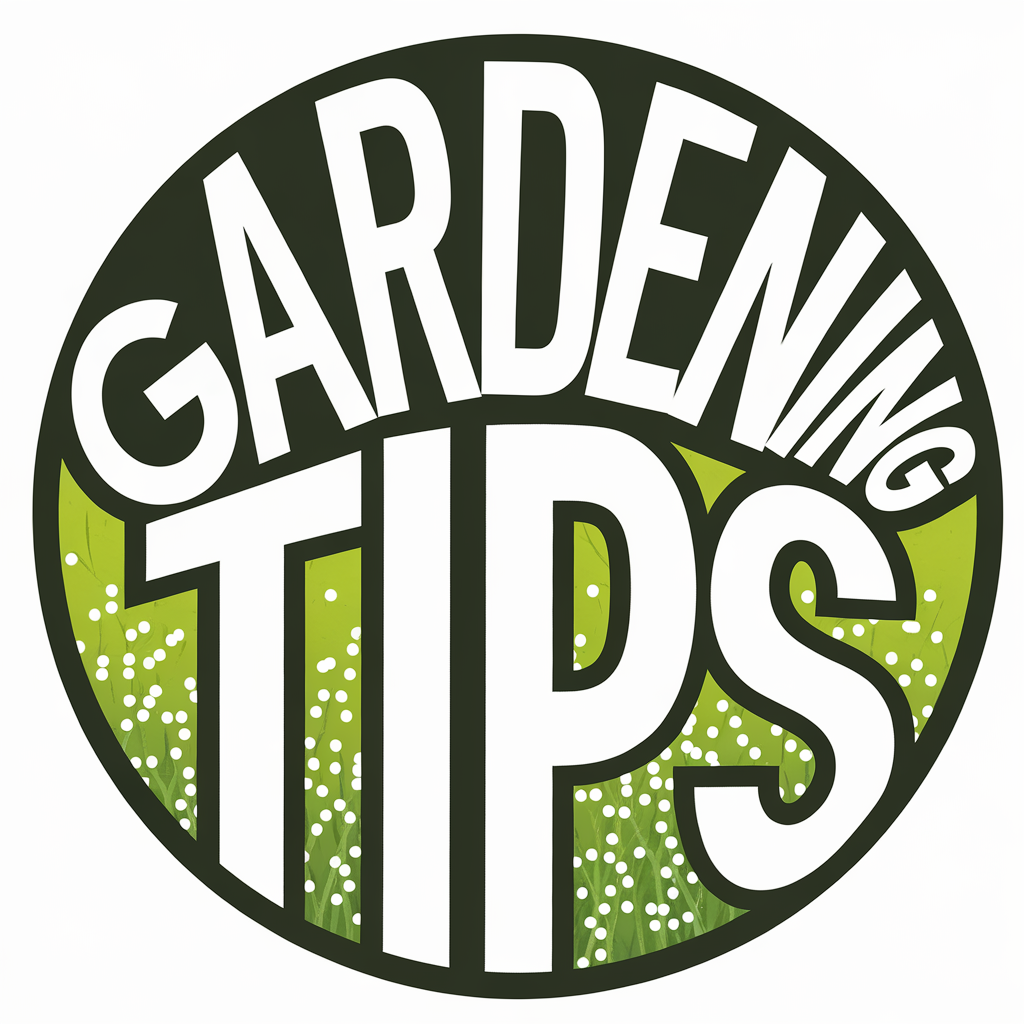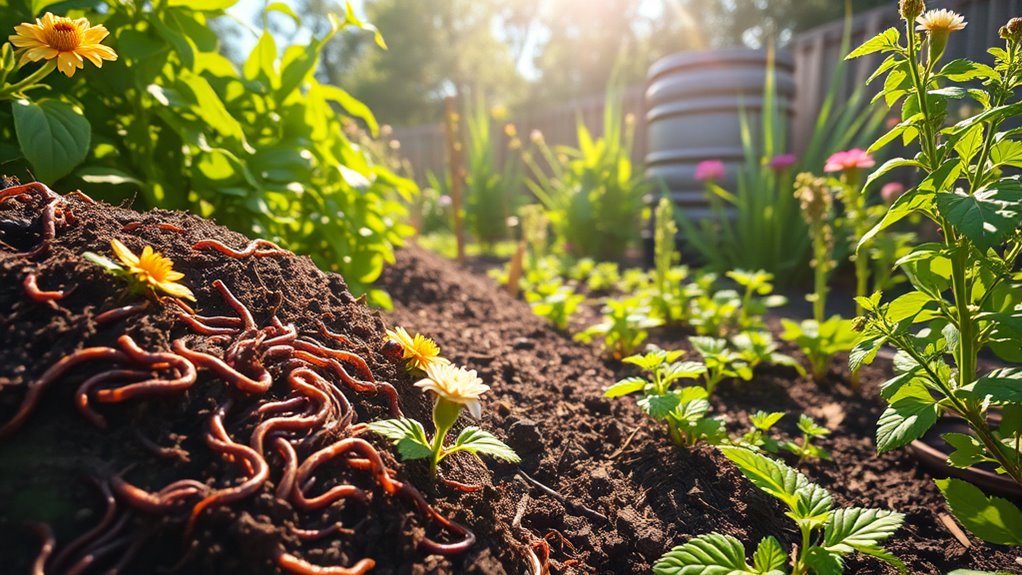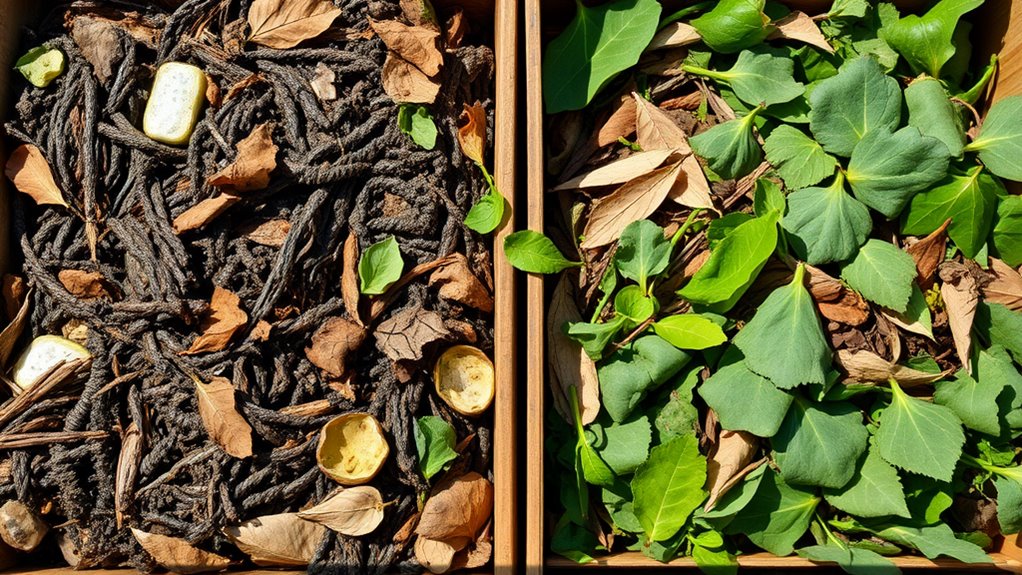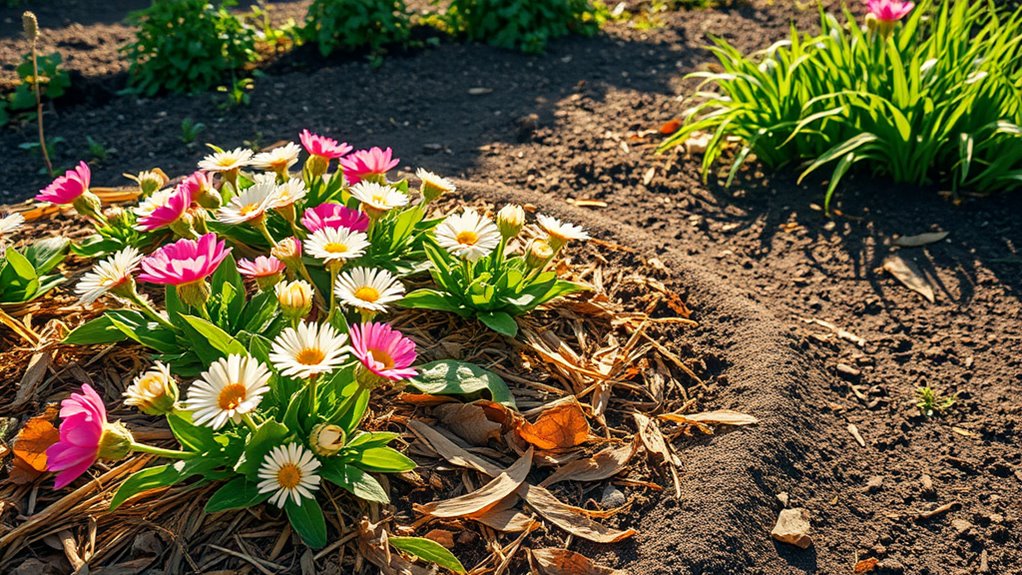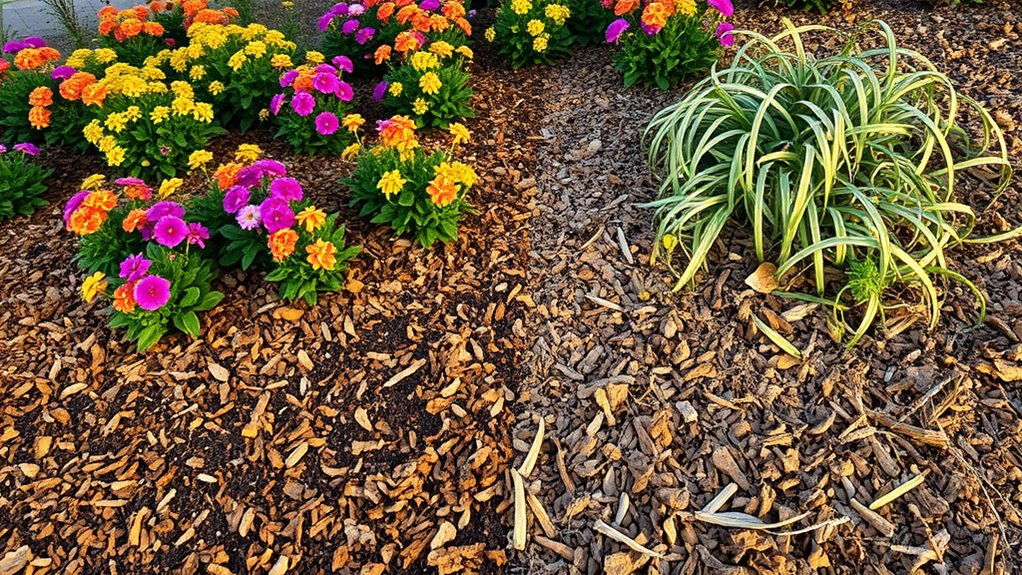These 5 Organic Tricks Keep My Garden Thriving Naturally
You can keep your garden thriving naturally with these five organic tricks. Start a compost pile using kitchen scraps and leaves to boost soil nutrients. Manage pests effectively by introducing ladybugs or applying neem oil sprays. Use mulching with straw to retain moisture and suppress weeds. Leverage companion planting, like marigolds near tomatoes, for natural protection. Enhance soil with cover crops and worm castings for better health. Put these into action and explore what’s next for even greater results.
Key Takeaways
- Start a compost pile with kitchen scraps and yard waste to enrich soil nutrients naturally.
- Introduce beneficial insects like ladybugs to control pests such as aphids effectively.
- Apply a 2-4 inch layer of mulch to retain soil moisture and suppress weeds.
- Use companion planting, like marigolds with tomatoes, to naturally deter pests.
- Incorporate cover crops like clover to fix nitrogen and enhance soil health organically.
Harnessing Compost for Nutrient-Rich Soil
If you’re aiming to boost your garden’s vitality, harnessing compost transforms ordinary soil into a nutrient-packed powerhouse.
One of the key organic gardening tips is to start a compost pile with kitchen scraps, yard clippings, and dry leaves, layering greens and browns for balance. For best results, focus on including kitchen scraps like fruit peels and coffee grounds to recycle waste effectively.
Keep it moist and turn regularly to accelerate decomposition into nutrient-rich humus.
Apply this to your beds by mixing in a few inches before planting, which enhances soil texture, retains water, and delivers essential minerals.
You’ll promote robust root systems and sustainable growth, embodying core organic gardening tips for healthier plants without chemicals.
Embracing this approach allows you to turn everyday kitchen scraps into garden gold, enhancing your garden’s sustainability.
Natural Pest Management Techniques
While pests can wreak havoc on your garden, you’ll effectively control them using natural techniques that promote balance without harsh chemicals. Start by introducing beneficial insects like ladybugs to devour aphids, or apply neem oil sprays to disrupt pest cycles. Companion planting, such as basil near tomatoes, naturally deters unwanted bugs. Rotate crops annually to break pest life cycles and maintain soil health. Additionally, utilizing easily accessible staples from your kitchen can provide more options for natural pest deterrence.
| Technique | Benefits |
|---|---|
| Beneficial insects | Eat pests, reducing populations |
| Neem oil application | Repels and controls infestations |
| Companion planting | Deters pests through aromas |
| Crop rotation | Prevents pest buildup over time |
To expand your options, consider exploring unconventional remedies for additional natural ways to manage pests effectively. These methods keep your garden thriving sustainably. (Word count: 120)
Effective Mulching Strategies
Mulching enhances your garden’s health by conserving moisture and stifling weeds, making it a simple yet powerful tool in organic gardening.
Choose mulches like straw, leaves, or compost that enrich the soil as they decompose. Apply a 2-4 inch layer around plants, keeping it away from stems to prevent rot and disease.
This maintains even soil temperature, reduces evaporation, and minimizes weed seeds from germinating. You’ll save time on maintenance and see healthier growth. Moreover, mulch supports pest control by acting as a barrier against common garden pests.
Refresh mulch every few months, especially after rain, to sustain its benefits and keep your soil nutrient-rich.
A simple switch in mulching techniques can transform your garden’s growth and size, as demonstrated through effective strategies.
Companion Planting Benefits
Companion planting boosts your garden’s vitality by strategically pairing plants that support each other’s growth and ward off pests.
You’ll find that planting marigolds alongside tomatoes repels nematodes and aphids, keeping your crops healthier.
Basil near peppers enhances flavor while deterring insects like flies.
Try interspersing beans with corn; the beans fix nitrogen, aiding corn’s development without synthetic aids.
For herbs, thyme with cabbage deters caterpillars naturally.
Experiment with these pairings to maximize space, reduce chemical needs, and enjoy a balanced, productive garden that thrives through mutual benefits.
Always observe and adjust based on your local conditions.
Understanding the scientific principles behind companion planting can further enhance your garden’s productivity and health.
Moreover, these strategies can increase crop yields by fostering specific plant pairings that thrive together this season.
Organic Soil Enhancement Methods
To build a thriving garden, you’ll enrich your soil using organic methods that boost nutrients and structure without chemicals.
Start by creating a compost pile from kitchen scraps, leaves, and grass clippings; it supplies essential microbes and humus for better fertility. For busy beginners, explore low-effort composting to create nutrient-rich compost with minimal time and effort.
Plant cover crops like clover or beans to naturally fix nitrogen and prevent erosion.
Apply mulches such as straw or wood chips to retain moisture, suppress weeds, and moderate temperature.
Incorporate worm castings or aged manure for targeted nutrients.
Regularly test soil pH and adjust with natural amendments like lime, ensuring balanced, productive earth for healthy plants.
To keep your compost pile effective, troubleshoot composting issues like imbalanced moisture or poor aeration for optimal results.
